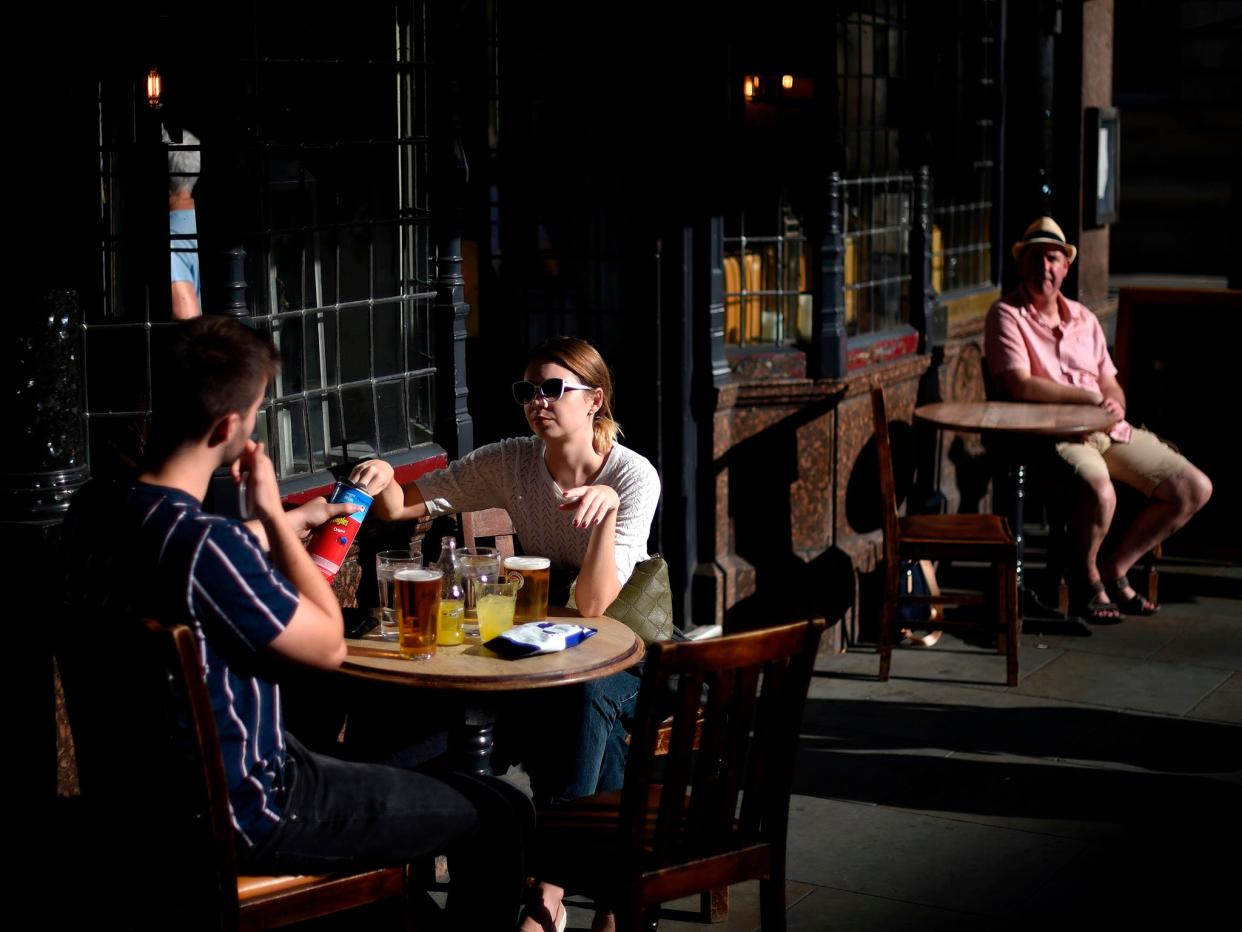Coronavirus: Key points in Boris Johnson’s new restrictions for England

Boris Johnson has announced a raft of new coronavirus restrictions for England in an effort to stem the steep rise in cases.
The prime minister told MPs the measures could last for six months and warned the UK was at a “perilous turning point” in its battle with the virus.
Here are the key changes Mr Johnson announced in the House of Commons:
Working from home
Mr Johnson said office workers who can work from home should now do so.
However, people in key public services and professions where home working is not possible, such as retail or construction, should continue to attend their workplaces.
The prime minister said office workers who can work from home should now do so. But people in key public services – and professions where home working is not possible, such as retail or construction – should continue to attend their workplaces.
Pubs, bars and restaurants curfew
Pubs, bars and restaurants will be forced to close at 10pm every night from Thursday.
They have also been told they must provide table service only, except for takeaways.
The prime minister said it means “closing, and not just calling for last orders”.
Face coverings required in more places
Retail staff have been told to wear face coverings from 12.01am on Monday.
Staff and customers in indoor hospitality venues will also be required to wear face coverings, except when seated at a table to eat or drink.
Passengers travelling in private hire vehicles or taxis will also be required to wear face coverings from 12.01am on Thursday.
Face coverings are already mandatory on public transport and in transport hubs.
Rule of six tightened
Indoor sport will no longer be exempt from the rule of six, meaning indoor adult team sports involving more than six people – such as five-a-side football – will be banned from Thursday.
Wedding attendees cut from 30 to 15 people
The maximum number of people allowed to attend wedding ceremonies and receptions will be reduced from 30 to 15 from Monday.
Up to 30 people can still attend a funeral.
Return of spectators to sports venues postponed
The planned return of spectators to sports venues will no longer go ahead from 1 October.
Mr Johnson said the spread of the virus was also affecting the ability to reopen business conferences and exhibitions.
Tougher penalties
Penalties for those who fail to wear a mask or break the rule of six will be doubled to £200 for a first offence.
Fines of up to £10,000 for those who fail to self-isolate have already been introduced.
No second lockdown - yet
The prime minister insisted the measures did not amount to a second lockdown.
"This is by no means a return to the full lockdown of March. We're not issuing a general instruction to stay at home, we will ensure that schools, colleges and universities stay open, because nothing is more important than the education, health and wellbeing of our young people," he said.
But he warned tougher measures may be needed if the R number, the average number of people someone with Covid-19 infects, remains above one.
"I must emphasise that if all our actions fail to bring the R below one then we reserve the right to deploy greater firepower with significantly greater restrictions," he said.
Tougher measures in Scotland, Northern Ireland and Wales
In Scotland the first minister, Nicola Sturgeon, went further by imposing a ban on household visits from Wednesday.
And she suggested the tougher measures may mean they do not have to be in place as long as restrictions in England.
Recent Covid-19 restrictions are to be extended from specific postcodes to the whole of Northern Ireland from 6pm on Tuesday, preventing households from mixing indoors – except for single-person bubbles and certain other exemptions.
No more than six people from two households can meet in a garden.
However, pubs which do not serve food, known as wet pubs, are due to open on Wednesday, despite the latest restrictions. The deputy first minister, Michelle O'Neill, said whether to introduce an early closing time for pubs is something ministers would be considering, describing replicating the 10pm curfew being introduced in England as "fair enough" to consider.
The first minister, Arlene Foster, said a two-week period of lockdown to try to halt the spread of the virus, a so-called circuit breaker, could not be ruled out.
Wales’ first minister, Mark Drakeford, indicated people could be asked to make essential journeys only.
Mr Drakeford said many of the things being announced by Mr Johnson "we have already done in Wales", such as the encouragement to work from home where possible.
Measures across much of South Wales are due to come into force from 6pm on Tuesday. The measures, which are already in force across Rhondda Cynon Taf and Caerphilly county borough, will apply in Bridgend, Merthyr Tydfil, Newport and Blaenau Gwent.
Under the new rules which are due to come in people must not enter or leave the areas without a reasonable excuse and are only able to meet with other households outdoors, including members of their extended household. All licensed premises such as pubs have to close at 11pm.
Additional reporting by agencies
Read more
Boris Johnson refuses to apologise for ‘gross incompetence’ leading to restrictions

